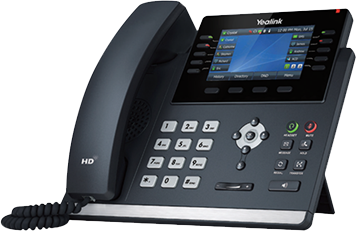
Managed Telecoms Services
In today's fast-paced business environment, having a reliable and efficient phone system is essential for success. A business phone system, also known as a PBX (private branch exchange) system, allows for internal and external communication, call routing, voicemail, and various other features. With the advancement of technology, there are now a variety of options available for businesses of all sizes, from traditional on-premise systems to cloud-based solutions. We will explore the different types of business phone systems, their features and benefits, and provide guidance on how to choose the right system for your organisation. Whether you are a small startup or a large enterprise, having the right phone system in place can help you run your business more efficiently a nd effectively.
There are several different types of business phone systems available, each with their own set of features and capabilities. The most common types include:
- On-premise PBX systems: These are traditional business phone systems that are installed and maintained on the company's own premises. They typically require a significant upfront investment and ongoing maintenance costs.
- Cloud-based PBX systems: Also known as hosted or virtual PBX systems, these are hosted by a third-party provider and can be accessed remotely via the internet. They are more flexible, cost-effective and easy to scale.
- Hybrid PBX systems: This type of system combines on-premise and cloud-based technologies, allowing companies to keep their existing PBX infrastructure while taking advantage of cloud-based features and scalability.
- Voip systems: Voice over Internet Protocol (VoIP) systems use the internet to make and receive phone calls, rather than traditional phone lines. This system can be installed in-house or cloud-based, offer many advanced features and cost-effective solutions compared to other types.
- Key systems: Also known as KSU-less or KSU-free systems, are designed for small businesses and are typically less expensive and easier to install than other types of phone systems. They offer basic calling features, such as call hold and transfer, but usually lack more advanced features like voicemail.
These are the main types of business phone systems, each has its own advantages and disadvantages, and the best one depends on the size of the business, its budget and communication needs.